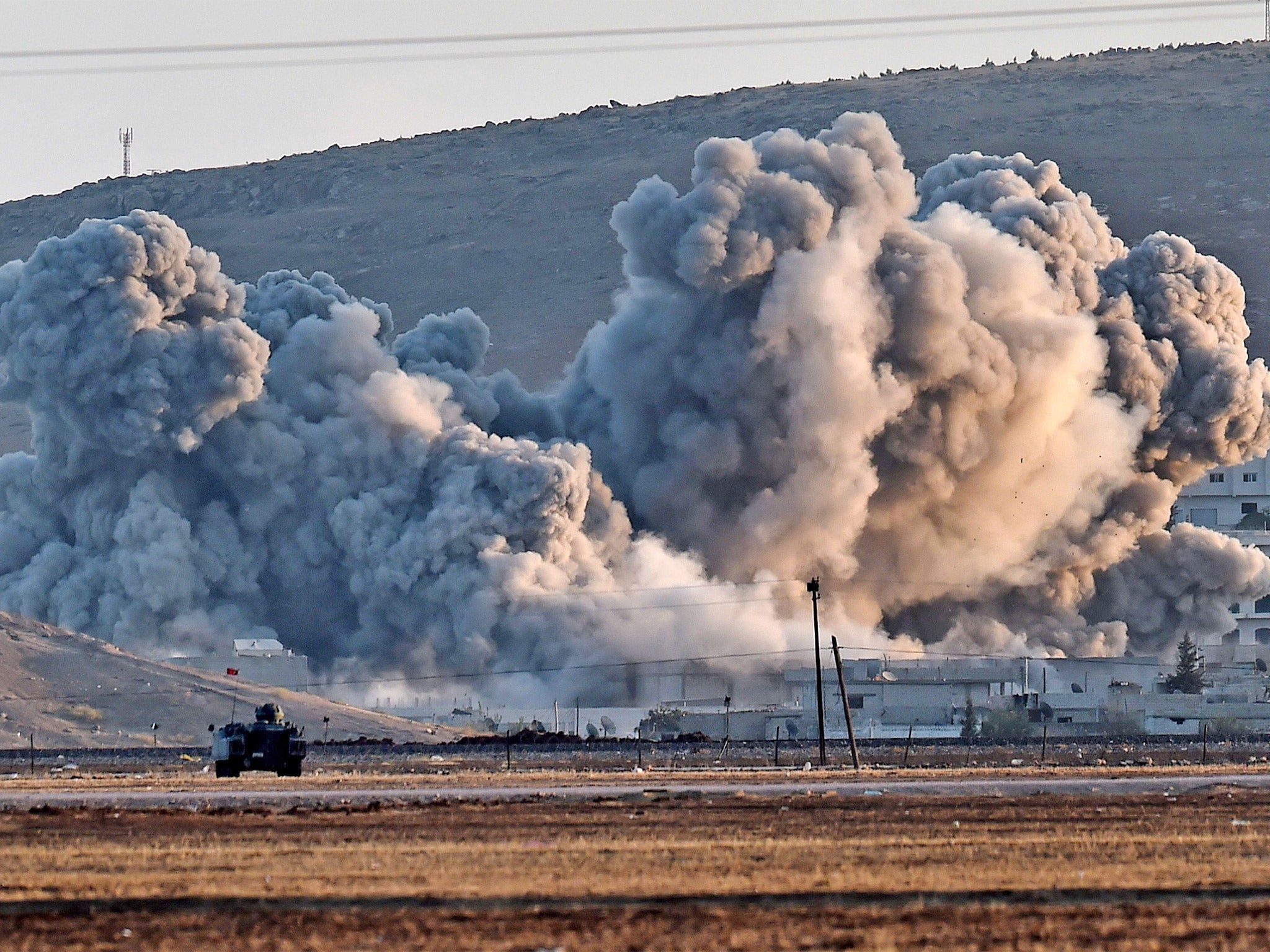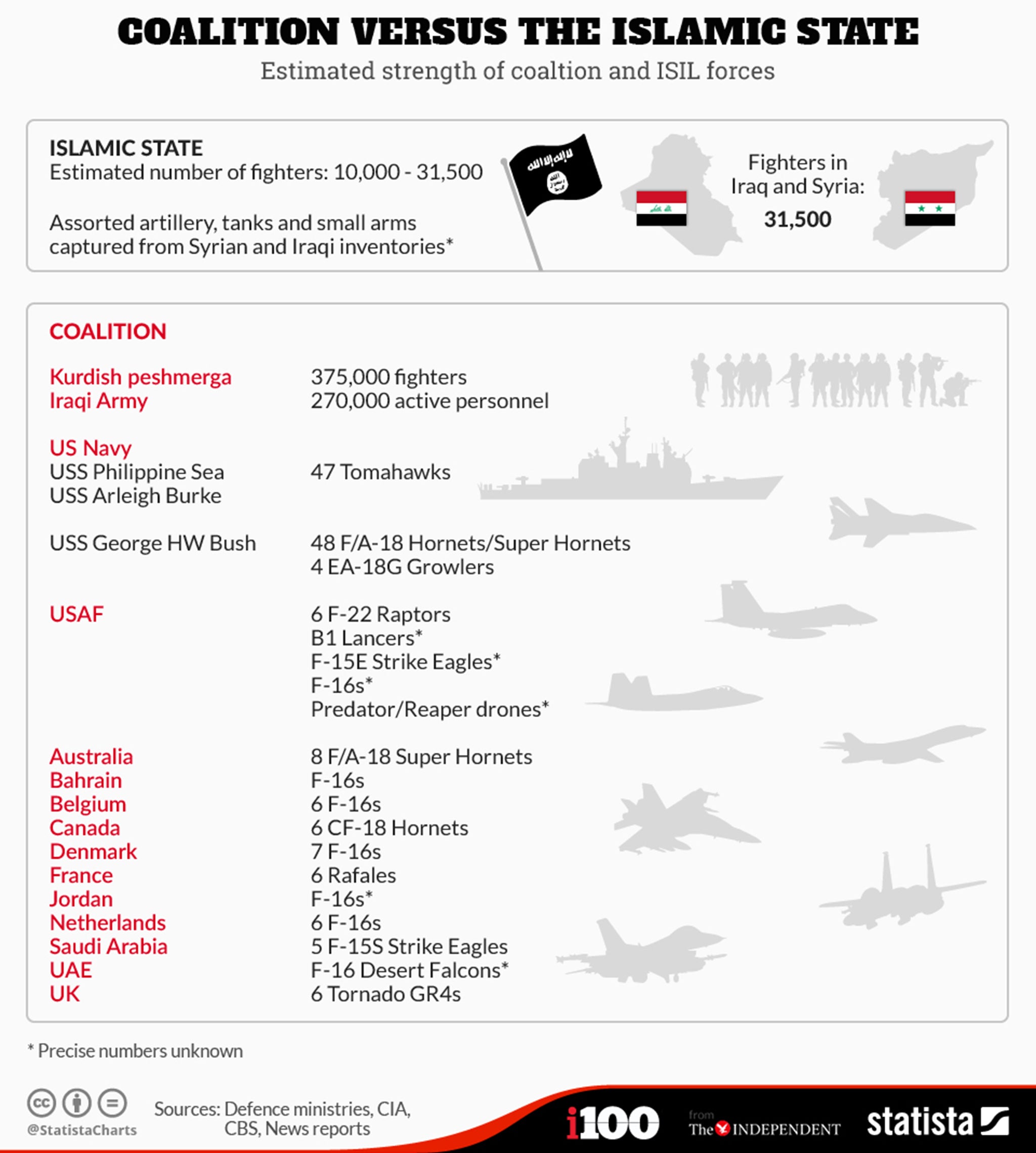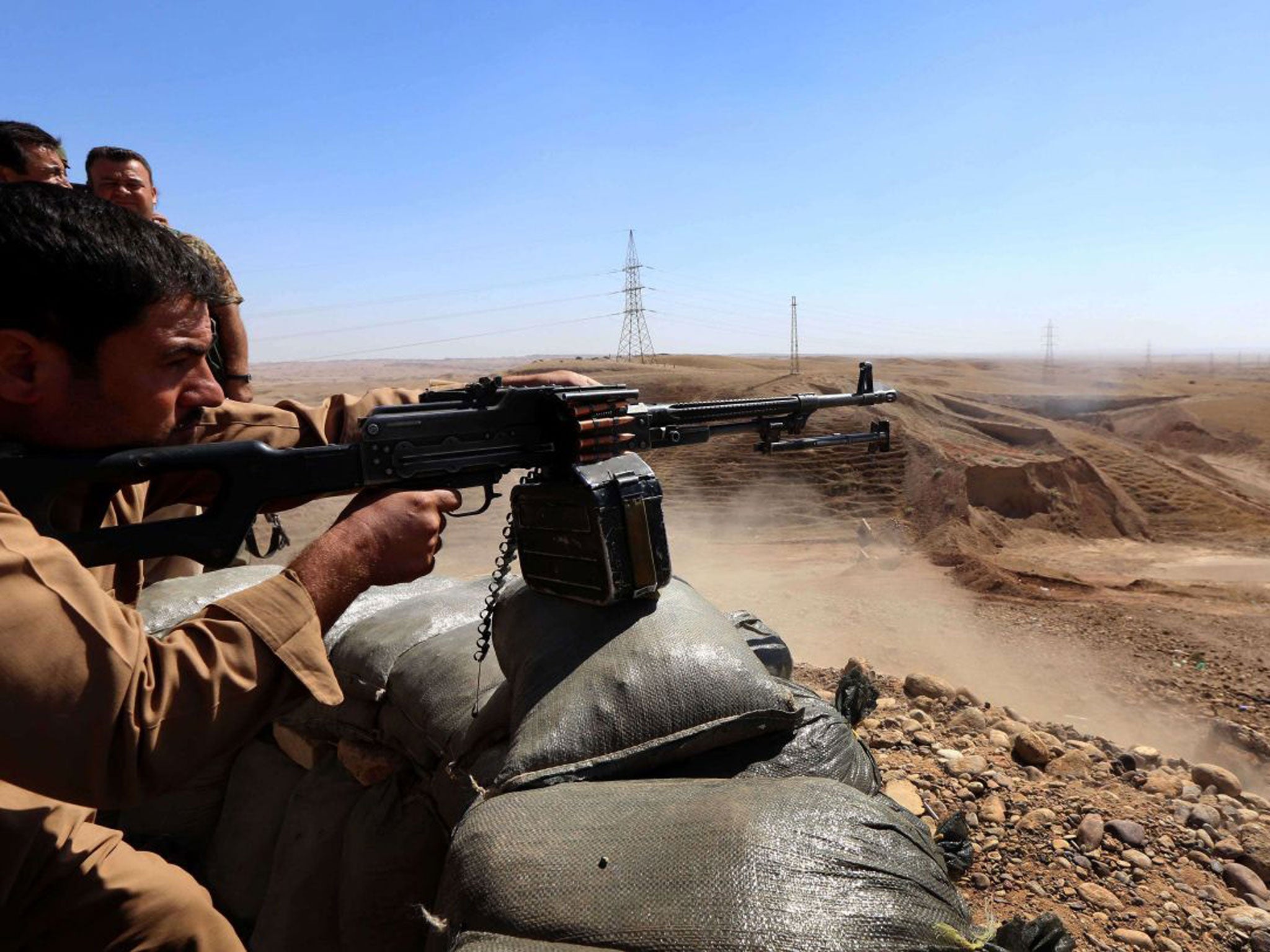Syria air strikes: Why can't the US-led coalition stop the march of Isis?
A study of the strength of Isis and the coalition shows a clear disparity between the two forces

With Isis on the verge of victory in Kobani, while also continuing its advance on Baghdad, questions have been raised over how the US-led coalition should attempt to deal with the threat of the militants.
Isis fighters now reportedly control more than a third of the strategic border town in northern Syria, despite air strikes today which have been the most intensive in the campaign so far.
As the UK and the US warn air strikes alone will not stop the town from being taken, a study of the estimated strength of the two forces shows there is clear disparity between their respective sizes.
The study, carried out by Statista for The Independent, suggests the number of coalition troops available to fight on the ground outnumber Isis militants by more than 20 to one.
And while Isis fighters are backed by assorted artillery, tanks and small arms captured by Syrian and Iraqi inventories, Kurdish peshmerga and Iraqi army troops fighting for the coalition are supported by three US Navy ships and aircraft from air forces across the world.

According to the study, the number of Isis fighters in Iraq and Syria is believed to stand at between 10,000 and 31,000.
The number of Kurdish peshmerga meanwhile is understood to be 375,000, while the Iraqi Army is believed to have 275,000 active personnel.
The coalition troops are also backed up by three US Navy ships - USS Philippine Sea, USS Arleigh Burke and USS George HW Bush - along with a range of aircraft including six F-22 Raptors from the US Air Force, six Tornado GR4s from the UK and six French Rafales.
Isis militants launched their offensive on Kobani in mid-September, capturing several nearby Kurdish villages and steadily tightening their noose around the town since then.
The fighting has also forced at least 200,000 town residents and villagers from the area to flee across the frontier into Turkey.
At the weekend, General Lord David Richards, the former Chief of Defence Staff, said Western ground troops should be deployed to Iraq.

He also said it was "a bit of a no-brainer" that Britain would have to widen its mission to join bombing raids against Isis positions in Syria. He claimed: "I'm very clear that is the view of the Prime Minister and most of his party."
Deputy Prime Minister Nick Clegg however made clear that the Liberal Democrats continued to oppose sending UK planes into Syrian airspace.
Labour leader Ed Miliband meanwhile has said he was not ruling out action in Syria, but wanted an attempt made at the UN to secure approval for such a move.
As Defence Secretary Michael Fallon today urged the Turkish government to become involved in the fight against Isis, he also acknowledged Isis had to be defeated in both Iraq and Syria.
Following last month's emergency Commons vote, Britain is currently conducting air strikes against Isis forces in Iraq.
"We don't have authority from Parliament to operate in Syria at the moment. Our judgment at the moment is that Parliament wouldn't give us that authority," he said.
The US-led coalition meanwhile today pounded Isis positions in Kobani in some of the most intensive strikes in the air campaign so far, a Kurdish official and an activist group said.
Isis fighters however managed to capture a police station in the east of the town despite the air strikes, the British-based Syrian Observatory for Human Rights has said.
The militants now control more than third of the strategic border town, added the Observatory, a group that tracks Syria's civil war through a network of activists on the ground.
Join our commenting forum
Join thought-provoking conversations, follow other Independent readers and see their replies
Comments